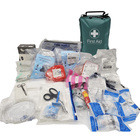HIV and Aids
Unlock This Video Now for FREE
This video is normally available to paying customers.
You may unlock this video for FREE. Enter your email address for instant access AND to receive ongoing updates and special discounts related to this topic.
Human Immunodeficiency Virus (HIV): Overview and Treatment
Human Immunodeficiency Virus, or HIV, is a virus that attacks the immune system, weakening the body’s ability to fight infections and diseases. If left untreated, HIV can develop into Acquired Immune Deficiency Syndrome (AIDS), the most advanced stage of infection, where the immune system is severely damaged and unable to defend against serious illnesses.
How HIV Is Transmitted
HIV is primarily transmitted through the following methods:
- Unprotected sexual contact with an infected person
- Sharing needles, syringes, or other injecting equipment
- From mother to child during pregnancy, childbirth, or breastfeeding
- Contaminated blood transfusions or organ transplants (rare in the UK due to strict screening protocols)
HIV Myths: What It Doesn’t Spread Through
HIV is not spread by everyday contact such as:
- Hugging, shaking hands, or sharing food or drink
- Using toilets or swimming pools
- Sneezing or coughing
The virus is fragile and does not survive long outside the human body.
Treatment and Management
While there is currently no cure for HIV, it is now considered a manageable long-term condition. Antiretroviral therapy (ART) allows people with HIV to live long, healthy lives. Modern treatments can reduce the viral load to undetectable levels, meaning HIV cannot be passed on through sexual contact.
Early Diagnosis and Testing
Early diagnosis is essential for successful treatment and to prevent transmission. HIV testing is free and confidential through the NHS, sexual health clinics, and home-testing services. Testing is recommended for individuals at higher risk or those with concerns about possible exposure.
Trends in HIV Diagnoses in the UK
In recent years, there has been a slight increase in new HIV diagnoses in the UK, particularly among heterosexual men and women. Diagnoses also rose slightly among gay, bisexual, and other men who have sex with men. However, the majority of people living with HIV are receiving treatment, and most of those on treatment are virally suppressed.
Late Diagnoses: A Concern
Efforts are ongoing to reduce the number of late HIV diagnoses, as individuals diagnosed late are at greater risk of serious health complications and early mortality. Inequalities remain a concern, particularly among some ethnic minority groups and those with limited access to healthcare or testing services.
Efforts to End New HIV Transmissions by 2030
The UK is working towards the goal of ending new HIV transmissions by 2030. Key strategies include:
- Wider access to routine HIV testing, including opt-out testing in emergency departments
- Increased uptake and availability of Pre-Exposure Prophylaxis (PrEP) for those at higher risk
- Public education campaigns to encourage testing and reduce stigma
The Future Outlook
HIV continues to be a significant public health issue, but the outlook has improved dramatically due to early testing and effective treatment. With continued awareness, support, and access to care, it is possible to eliminate new HIV transmissions in the UK within the next decade.


